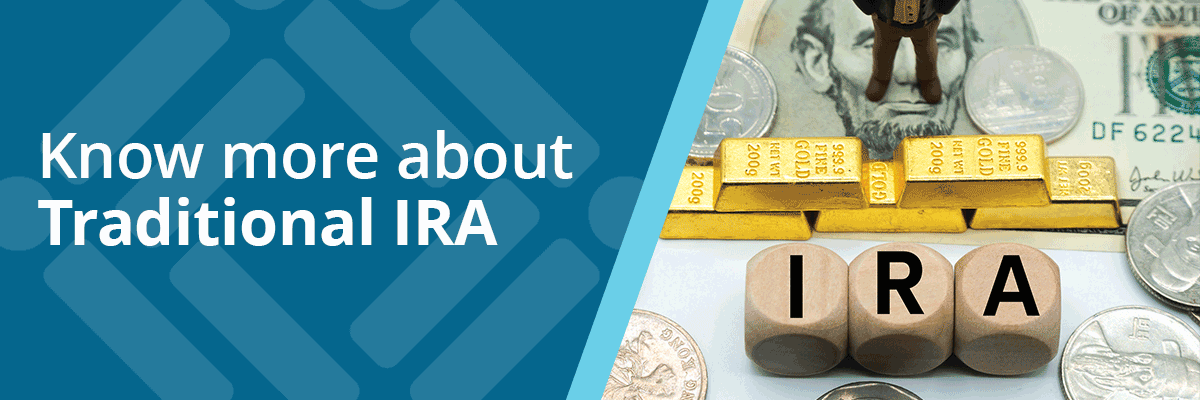A spousal IRA is a unique Individual Retirement Account that allows an unemployed or low-earning...
All you need to now about Traditional IRA's

No, IRA is not the name of a nice guy who will hold onto your money until you’re ready to retire. But you’re on the right track! Let’s take a look at Individual Retirement Plans (IRA), which is one of the most popular retirement tools.
What is a traditional IRA?
A traditional IRA is a tax-advantaged retirement savings account designed to help individuals build up funds for their post-employment years. Contributions made to a traditional IRA may be tax-deductible in the year they are made, providing an immediate reduction in taxable income. Earnings and gains are generally not taxed until the account holder begins taking distributions.
How do traditional IRAs work?
Here’s a quick rundown of how traditional IRAs work:
- Contributions. Individuals under the age of 70½ who have earned income can contribute to a traditional IRA. Limits are set annually by the Internal Revenue Service (IRS) and may vary based on factors such as age and income level.
- Tax deductibility. Contributions to traditional IRAs are generally tax-deductible.
- Tax-deferred growth. Once funds have been contributed to a traditional IRA, they grow, tax-deferred.
- Required minimum distributions. The IRS mandates individuals take required minimum distributions (RMDs) from their traditional IRA by April 1 of the year following the calendar year in which they turn 72.
- Early withdrawal penalties. Withdrawals made from a traditional IRA before the age of 59½ typically result in a 10% early withdrawal penalty.
What are the benefits of traditional IRAs?
In addition to the advantages mentioned above, including tax-deductible contributions and tax-deferred growth, there are other benefits to traditional IRAs.
First, IRAs offer flexibility in investment choices. You can choose from investing your IRA funds in stocks, bonds, mutual funds and more. This flexibility allows you to tailor your investments based on your risk tolerance and financial goals.
Also, opening a traditional IRA offers the owner the potential for being in a lower tax bracket during retirement. This means that withdrawals made during retirement can be subject to lower taxes than the tax rate applied during their working years.
What do I need to consider before opening a traditional IRA?
There are several important factors to consider before opening an IRA:
- You’ll need to take RMDs during your retirement. Failing to take the mandated distributions can result in penalties.
- Withdrawals are subject to income tax, so it’s important to consider these tax consequences when deciding if an IRA is right for you.
- You’ll need to pay a penalty for early withdrawals. Any withdrawals made before the age of 59½ can trigger a 10% penalty in addition to income taxes.
- Your tax credits and deductions will be affected by the IRA. Individuals earning a high income who are covered by a workplace retirement plan may face limitations on their ability to deduct traditional IRA contributions.
Use this guide to learn how an IRA works, its advantages and what to consider before opening a traditional IRA to hold your retirement funds.
To learn more about retirement and the transition reserve your virtual seat at one of our engaging webinars, register here: https://info.mscu.net/financial-webinars

.png?height=200&name=8%20ways%20to%20celebrate%20Fathers%20Day%20(1).png)

.png?height=200&name=8%20ways%20to%20celebrate%20Fathers%20Day%20(71).png)